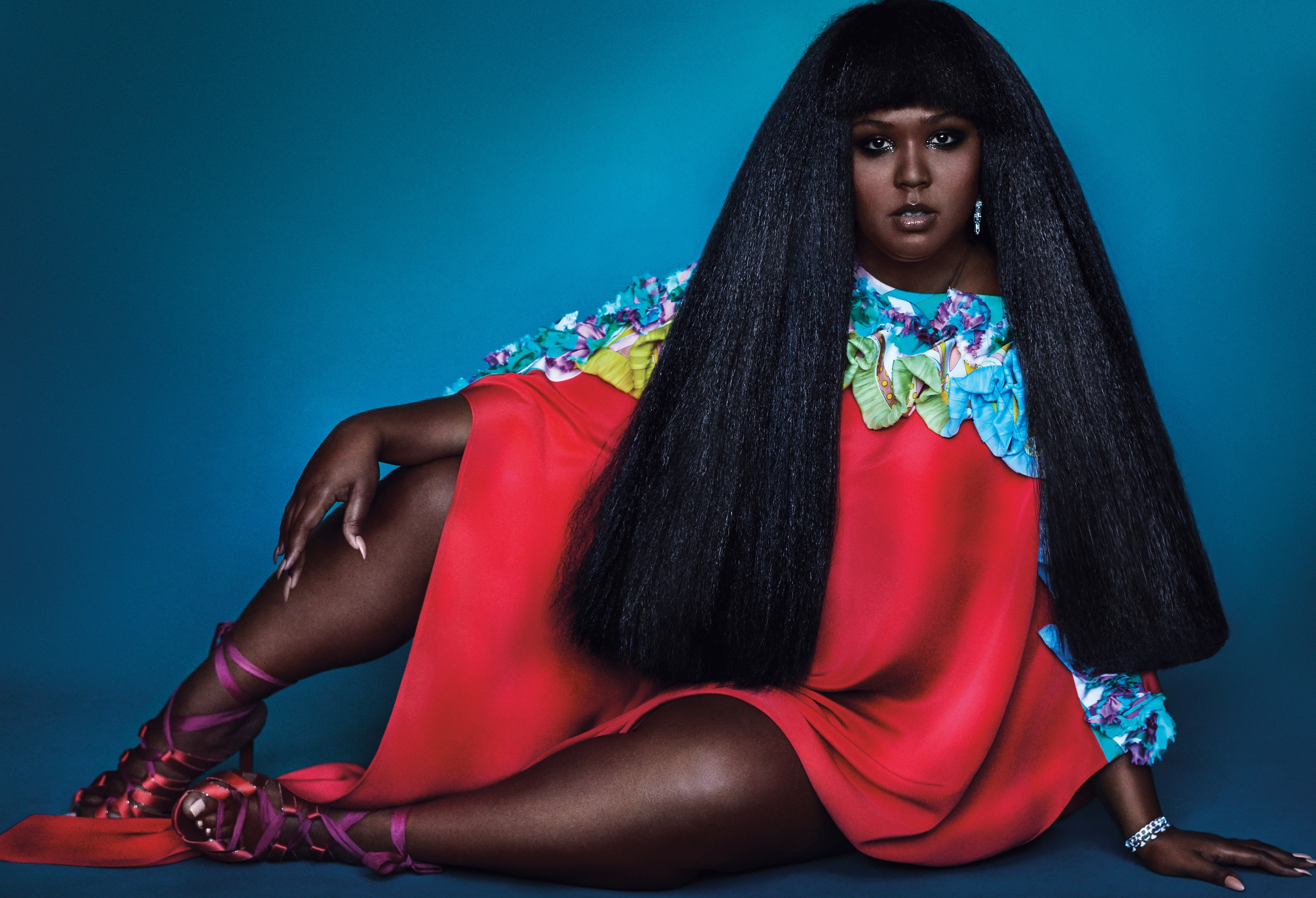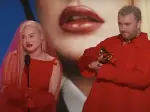On July 3, DoubleJRadio tweeted “Is Lizzo’s new track “Boys” one of the best tracks of 2018?” Lizzo directly responded on her own twitter: “Yes.” Her confidence is undeniable, genuine and as she’s stated, comes from “within” her.
Lizzo, the self-proclaimed “America’s Next Top Bop Star,” is a singer and rapper from Minneapolis, Minnesota. I first heard Lizzo during Broad City’s hilarious “Four Seasons in the Bathroom” third season opener.
— FOLLOW @YITTY (@lizzo) July 4, 2018
The collaboration between Lizzo and Caroline Smith called “Let ‘Em Say” plays over Abbi and Ilana taking bong rips, peeing, performing self-breast exams and partaking in countless other activities.
Since 2013, Lizzo has released three albums (“Lizzobangers,” “Big Grrrl, Small World” and “Coconut Oil – EP”) and her track “Good As Hell” has been featured in countless TV shows. The song never fails to get me in a positive headspace through Lizzo’s infectious joy. When she dances and smiles in the video for “Good As Hell,” I always want to join her.
Lizzo’s latest music videos have been no different. In anticipation for her next album, Lizzo released three singles, along with subsequent videos for each. “Truth Hurts” was released in September 2017, “Fitness,” earlier this year, and “Boys” at the end of June. All three songs include Lizzo’s clever and hilarious lyricism, and their videos don’t disappoint.
The video for “Truth Hurts” is set at an intimate wedding in which Lizzo is the glowing bride. In the opening seconds of “Truth Hurts,” Lizzo asks a resounding question: “why men great ‘til they gotta be great?” She then pats herself on the back, assuring listeners that she is still “100% that bitch” even when she’s “crying crazy.”
As Lizzo lounges in her lace bridal lingerie on her wedding day, she confides in her fellow bridesmaids. Having boy problems, she explains, is the “human” in her, but solving them is her inner “goddess.” She appreciates both her human and goddess forms by acknowledging that first, her struggles are wonderfully normal, and, second, her abilities to push through them are divine.
The song itself focuses on Lizzo’s realization that she cannot, and will not, be held back by men. She tells suitors that the “truth hurts,” the truth being that Lizzo chooses to unwaveringly thrive in her singledom.
Those in the bridal party in the video are individuals of all shapes, sizes and colors. They look real, unedited and unidealized. The groomsmen and male wedding guests are shown expressing genuine emotion. They are moved by the wedding’s events and weep, laugh and react.
After some minor conflict at the wedding ceremony, Lizzo triumphantly marries herself. She dances alone at the altar, flirts with the shirtless minister who is officiating, and confidently winks straight at the camera.
The reception following is a celebration of Lizzo’s independence. Guests of varying races, sizes, and ages laugh and dance with Lizzo as she confidently parades around in her gown. Everyone eats the wedding cake, joyously using their hands at points. In one of the video’s final shots, the entire cast poses for a photo as Lizzo marvelously licks excess frosting off her face.
The closing shot of “Truth Hurts” shows bride and groom figurines on Lizzo’s wedding cake. The grooms face is obscured by a glob of cake, and a hazy purple and blue light shines on the glowing bride figurine.
Themes of independence and inclusive self-love are further fleshed out in Lizzo’s more recent videos as well. In “Fitness,” Lizzo is a leather-clad dominatrix surrounded by similarly dressed women of all shapes and sizes. She declares that she’s “independent” and “athletic,” in that order.
Like “Truth Hurts,” “Fitness” is a visual celebration of all things Lizzo. When she isn’t standing alongside her fellow powerful women, Lizzo is seated on various athletic benches explaining the pride she feels for her own body. “See this ass?” she asks. “Ain’t no rental.” She’s taking joyous and confident ownership of her physical form. Her confidence isn’t framed as an accomplishment or a threat, it’s a fact.
She sings of being excited to strut her stuff on the catwalk and be completely naked. “Fitness” isn’t about any sort of physical transformation for which Lizzo anticipates a happy ending. She already has “an ass that don’t stop,” and she knows it. There is no end goal, and she doesn’t feed inadequate. Being fit, independent and athletic make her happy.
Lizz’s prioritization of herself and her happiness is only further clarified when her lyrics “I DON’T DO THIS FOR YOU” flash across the screen in bold, red letters. Lizzo is seated on a bench, surrounded by her fellow athletic dominatrixes, wagging her finger back and forth. They all stare down the camera, solidifying the truth in Lizzo’s lyrics.
Some of the video’s most profound shots include Lizzo wearing exclusively a veil and various leather straps, cascading down a pole accompanied by another dancer with various designs painted on her body. The strength of both Lizzo and the dancer is intensely empowering. As the dancer does an impressive backbend, her muscles glisten and her natural body hair is shown.
“Fitness” exemplifies Lizzo’s acute ability to take confidence very seriously. In showcasing the strength found in so many different body types, she proves that confidence doesn’t play by society’s unfair rules and unrealistic expectations of beauty. Confidence is possible and available to all.
In her most recent single, “Boys,” Lizzo sings and raps about hitting up guys in a playful and very confident way. “Hit my phone boy, is you home boy? Are you alone boy? Come give me dome, boy.” The video opens with Lizzo and her friends all wearing animal-print lingerie. In other shots, Lizzo dances around and winks from behind circular-framed sunglasses, spitting off innuendos.
One of Lizzo’s greatest accomplishments in the “Boys” video is her total takedown and subsequent redefinition of masculinity. Lizzo sings about loving all sorts of men while she and other lingerie-clad women shake their thighs in a men’s bathroom. They then pretend to use urinals and lean over to view each other’s “packages.” Later, she and the other women mockingly grit their teeth and make fists, ridiculing unnecessary male aggression. Lizzo makes a complete farce out of toxic masculinity, and looks empowered while doing it.
After her emasculating stunt, Lizzo offers a replacement: completely inclusive masculinity. In the song’s rapid second verse, Lizzo says she loves “big boys, itty bitty boys, Mississippi boys, inner city boys,” “pretty boys with the boy tie,” boys who get their nails done, boys with big beards, clean faces, “playboys” and “gay boys.” “Sheesh, it’s all Greek to me,” she says.
“Go and slay, boys, you my fave, boys.” Lizzo is completely supportive of any and all expressions of masculinity. She doesn’t “discriminate.” As she rattles off her support for all sorts of boys, a variety of men are shown sincerely smiling straight at the camera. At times, a nude man is shown affectionately smelling a rose. Like Lizzo’s other videos, this is a celebration.
The video closes with shots of dancing men surrounding Lizzo. The entire group is wearing “LIZZO 2020” campaign sweatshirts, and Lizzo stands proudly in the center. The guys dance, continuing the video’s happy and celebratory mood. None of the men act threatening toward Lizzo; they are supportive, positive, and constantly grinning. “Boys” cleverly puts genuine male softness and female power on display. If Lizzo were to ever seriously consider a presidential run, this video should definitely be added to her campaign arsenal.
Lizzo is a creative mind that sees the importance in offering visual representations of inclusivity and confidence in all of her videos. Her music aims to lift people up and her videos truly do the same. Through her body positive and self-love message, Lizzo truly stands as a role model for her fans.

















